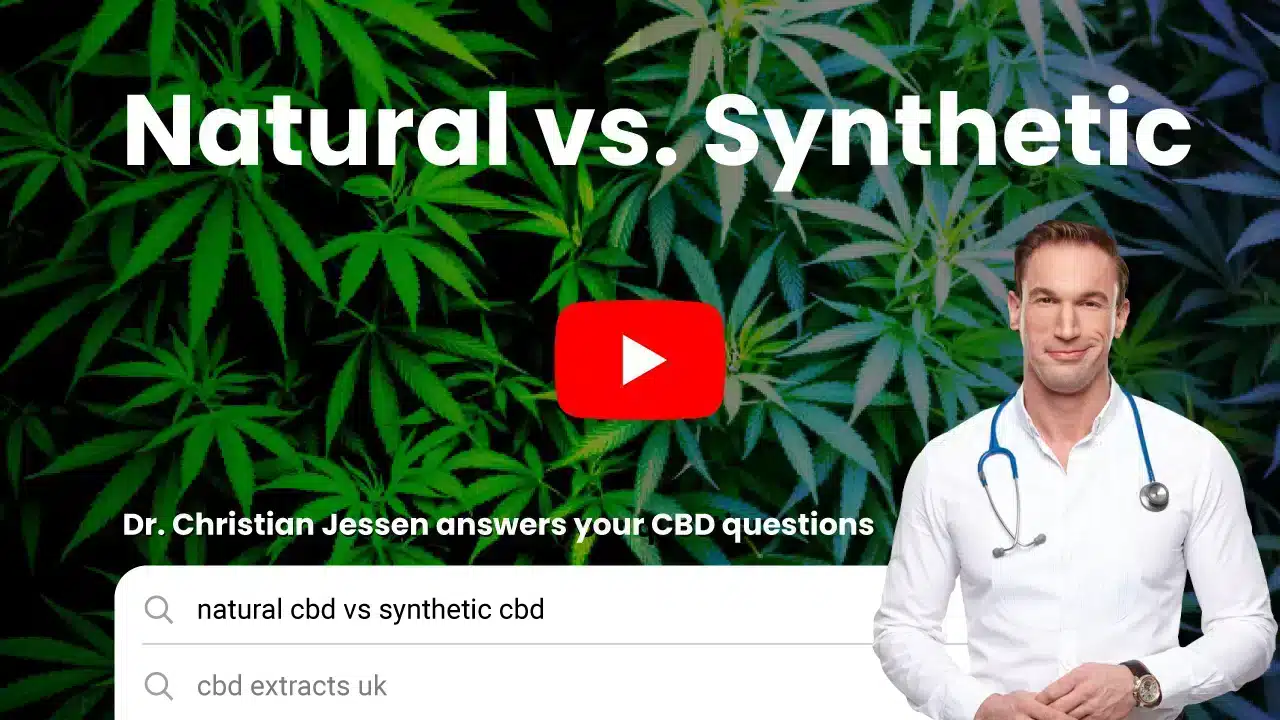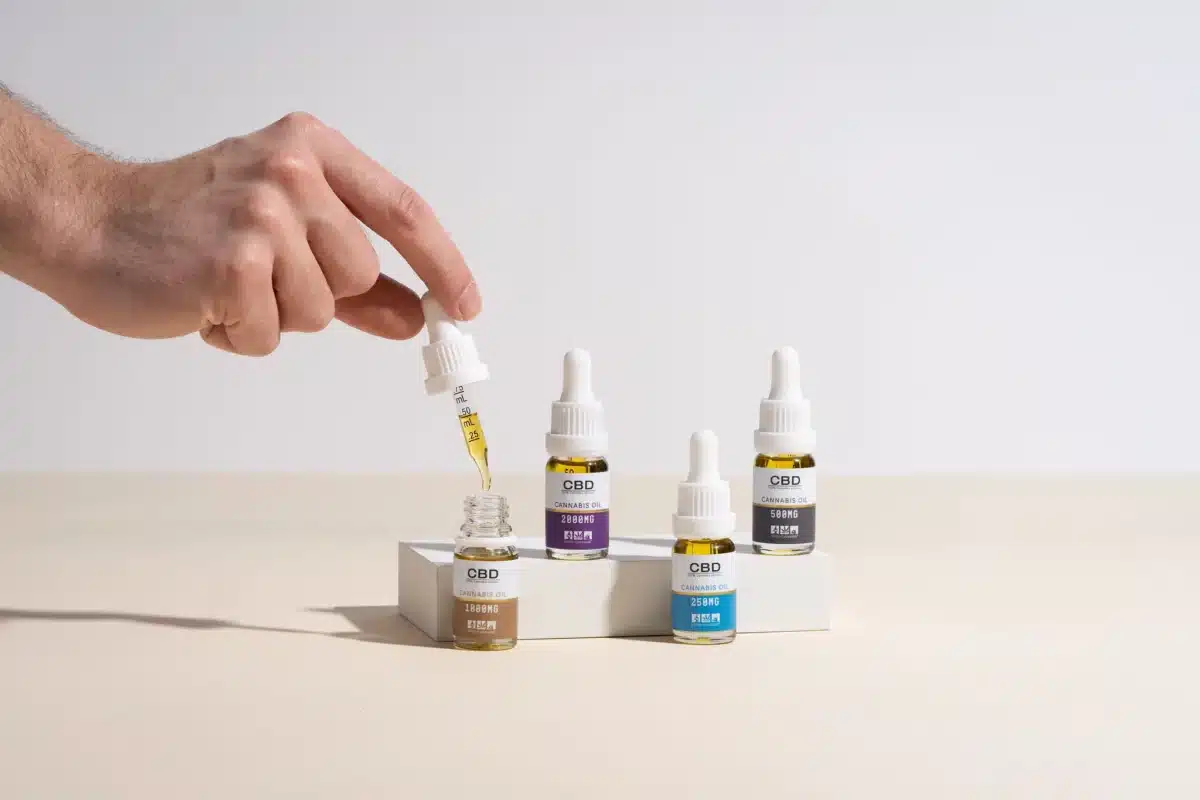British media doctor and health campaigner, Dr Christian Jessen answer your CBD questions. In this video you will find out ‘CBD Extract – Natural CBD vs synthetic CBD’ and other fundamentals about the compound found in cannabis.
DR Christian on 'CBD Extract – Natural CBD vs synthetic CBD'
Natural CBD has been extracted from cannabis plants grown specially for this purpose. The extract may be relatively unrefined, taking advantage of the symbiotic effect of other compounds that may work beneficially with CBD, or it may be highly refined until it contains only CBD.
Synthetic CBD is created chemically and will contain no plant derived compounds.

WATCH VIDEO
Ask Dr Christian your CBD question, we will be putting more of your questions to the popular health campaigner and TV doctor to answer. Watch the educational, video series to find out more.
BRITISH CANNABIS™ answer your question
We tell you exactly what CBD is..
Legislators have simplified the availability of CBD oils and capsules in the UK over the past year with the introduction novel food regulations. The CBD food supplement industry has been eagerly awaiting the publication of the much-anticipated novel foods exemption list. This will be published in the coming weeks, while they continue to meet consumer demands with uncertainty.

Natural cbd or cannabis-derived cbd
What's CBD isolate?
CBD isolate is the purest form of CBD. It contains no other cannabinoids and compounds. It can be extracted from hemp plants using a variety of methods including solvent extraction and lipid extraction. However, the process is more precise and results in a crystal form that can then be ground into a powder. Although full-extracted CBD is still possible, the effects of isolate may not be as noticeable due to the absence of other cannabis phytochemicals.
Environment friendly
CBD extract – Cannabis sativa l (hemp) can be grown outdoors. It is gmo-free and requires very little water. Hemp grows quickly and easily (between 60-90 days per crop), without the need for pesticides or herbicides. Each hectare of cannabis sativa l hemp (hemp) is capable of converting approximately 15 tonnes of co2 via its leaves and stem. This rate is higher than any other commercial crop. This is more than any carbon used in production and transportation.
Economically savvy
Benefits from whole-plant operations
Synthetic CBD
A highly pure' product
These brands may be able to sell “highly purified” products to certain consumers. They only contain one compound, which means there is no trace or thc. This process ensures that there is no variation in batches and does not pose any risk of toxicity. Some brands claim that their methods have enabled them to increase the bioavailability of CBD, increasing the body’s absorption and thus producing more effective products.
An entourage effect
Chemical traces
Share this page